O glorious St. Stephen, first martyr of the Church, help us to be strong in our faith, bold in our witness, and forgiving as you were in your final moments. Pray for us, that we too may reflect Christ’s light and love. Amen.
ST. STEPHEN (THE FIRST MARTYR)
ST. STEPHEN (THE FIRST MARTYR)
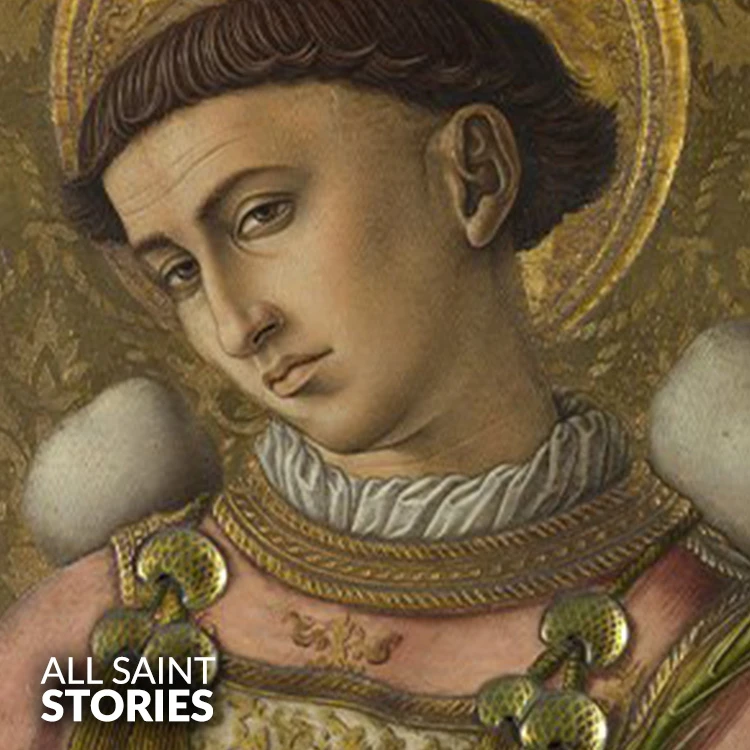
St. Stephen, the first Christian martyr, was a deacon known for his wisdom, faith, and bold preaching. He was stoned to death for proclaiming the gospel, and in his final breath forgave his persecutors. His feast is celebrated on December 26.
St. Stephen, known as the Protomartyr or first martyr of Christianity, is a pivotal figure in the early Church. His life and martyrdom are chronicled primarily in chapters 6 and 7 of the Acts of the Apostles. He was one of the seven men chosen by the apostles to serve as a deacon, a role created to address the needs of the Greek-speaking widows and to distribute food and assistance fairly within the early Christian community. Stephen stood out among the seven as a man full of faith, grace, and power. He performed great signs and wonders among the people and engaged in debates with members of various synagogues. However, his wisdom and spirit were so powerful that his opponents could not refute him.
Unable to win through argument, they conspired against him and brought him before the Sanhedrin, falsely accusing him of blasphemy against Moses and God. During his trial, Stephen delivered a lengthy and impassioned speech recounting the history of Israel and accusing the Jewish leaders of resisting the Holy Spirit just as their ancestors had. He pointedly accused them of betraying and murdering the Righteous One, Jesus Christ. His speech enraged the council, and in a moment of divine vision, Stephen looked up to heaven and proclaimed that he saw the glory of God and Jesus standing at the right hand of God. This declaration further infuriated the assembly, and they rushed at him, dragged him outside the city, and stoned him to death.
Stephen's martyrdom is notable for its Christ-like parallels. As he was being stoned, he prayed for his executioners, saying, “Lord, do not hold this sin against them,” and commended his spirit to Jesus. Among those present and approving of his death was Saul of Tarsus, who would later become the Apostle Paul after his dramatic conversion. Stephen's witness, both in life and death, left a lasting impression on the early Christian community and the broader development of Christian theology concerning martyrdom, forgiveness, and faithfulness unto death.
St. Stephen’s death marks the beginning of widespread persecution against the Church in Jerusalem, which ironically led to the spread of the gospel as believers fled to other regions. His example of faith under fire became a powerful testimony that would echo throughout Christian history, inspiring countless other martyrs and believers to remain steadfast in their faith. The Church honors him not just as a martyr, but as a symbol of courageous witness and the power of grace to forgive even in the face of death. His feast day is celebrated on December 26 in Western Christianity and in various dates in Eastern traditions, often immediately following the celebration of Christ’s birth, reflecting the close link between Christ’s incarnation and the call to Christian witness.
His legacy lives on in art, theology, and the naming of many churches and institutions around the world. Stephen is often depicted in deacon’s vestments holding stones, a martyr’s palm, or a miniature church, symbolizing his role as a servant and a martyr. He is the patron saint of deacons, altar servers, stonemasons, and those suffering from headaches, further illustrating his wide spiritual influence. Though the exact date of his birth and canonization are not known, he has been venerated since the earliest days of the Church and is recognized universally by Christians of various traditions.
Video Not Found
The information on this website is compiled from various trusted sources. While we aim for accuracy, some details may be incomplete or contain discrepancies.
If you notice any errors or have additional information about this saint, please use the form on the left to share your suggestions. Your input helps us improve and maintain reliable content for everyone.
All submissions are reviewed carefully, and your personal details will remain confidential. Thank you for contributing to the accuracy and value of this resource.
Credits & Acknowledgments
- Anudina Visudhar (Malayalam) – Life of Saints for Everyday
by Msgr. Thomas Moothedan, M.A., D.D. - Saint Companions for Each Day
by A. J. M. Mausolfe & J. K. Mausolfe - US Catholic (Faith in Real Life) – Informational articles
- Wikipedia – General reference content and images
- Anastpaul.com – Saint images and reflections
- Pravachaka Sabdam (Malayalam) – Saint-related content and insights
We sincerely thank these authors and platforms for their valuable contributions. If we have unintentionally missed any attribution, please notify us, and we will make the correction promptly.
If you have any suggestion about ST. STEPHEN (THE FIRST MARTYR)
Your suggestion will help improve the information about this saint. Your details will not be disclosed anywhere.
© 2026 Copyright @ www.allsaintstories.com

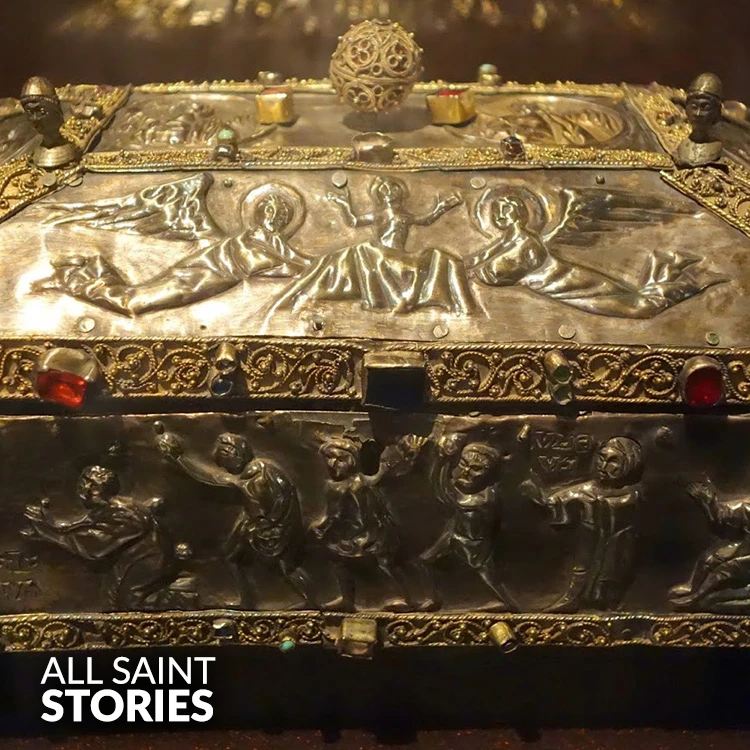
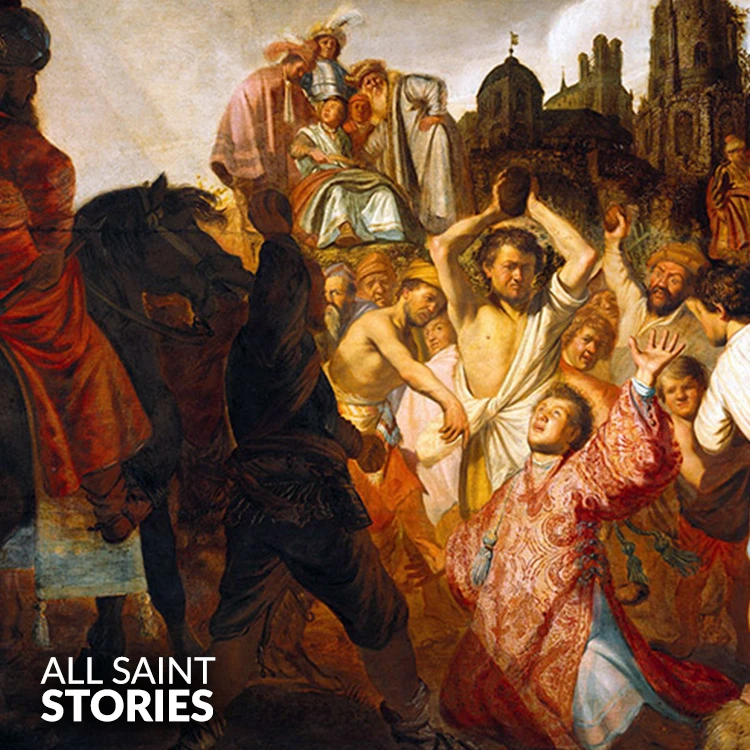
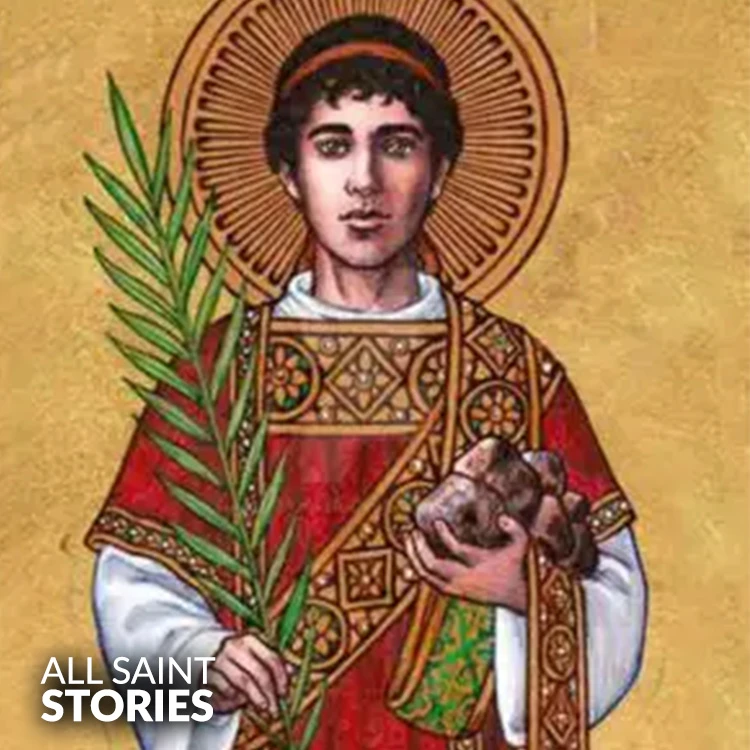
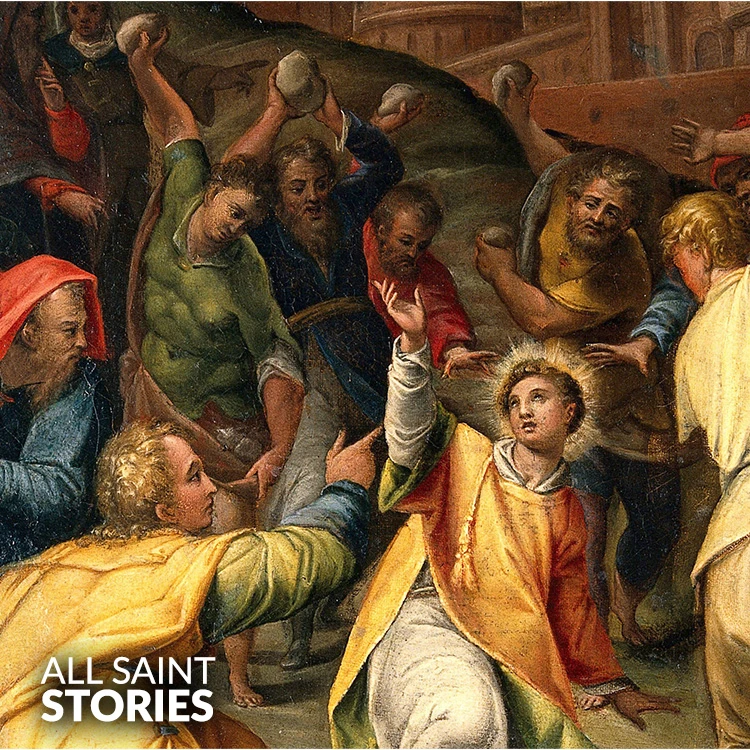

 English
English
 Italian
Italian
 French
French
 Spanish
Spanish
 Malayalam
Malayalam
 Russian
Russian
 Korean
Korean
 Sinhala
Sinhala
 Japanese
Japanese
 Arabic
Arabic
 Portuguese
Portuguese
 Bantu
Bantu
 Greek
Greek
 German
German
 Dutch
Dutch
 Filipino
Filipino